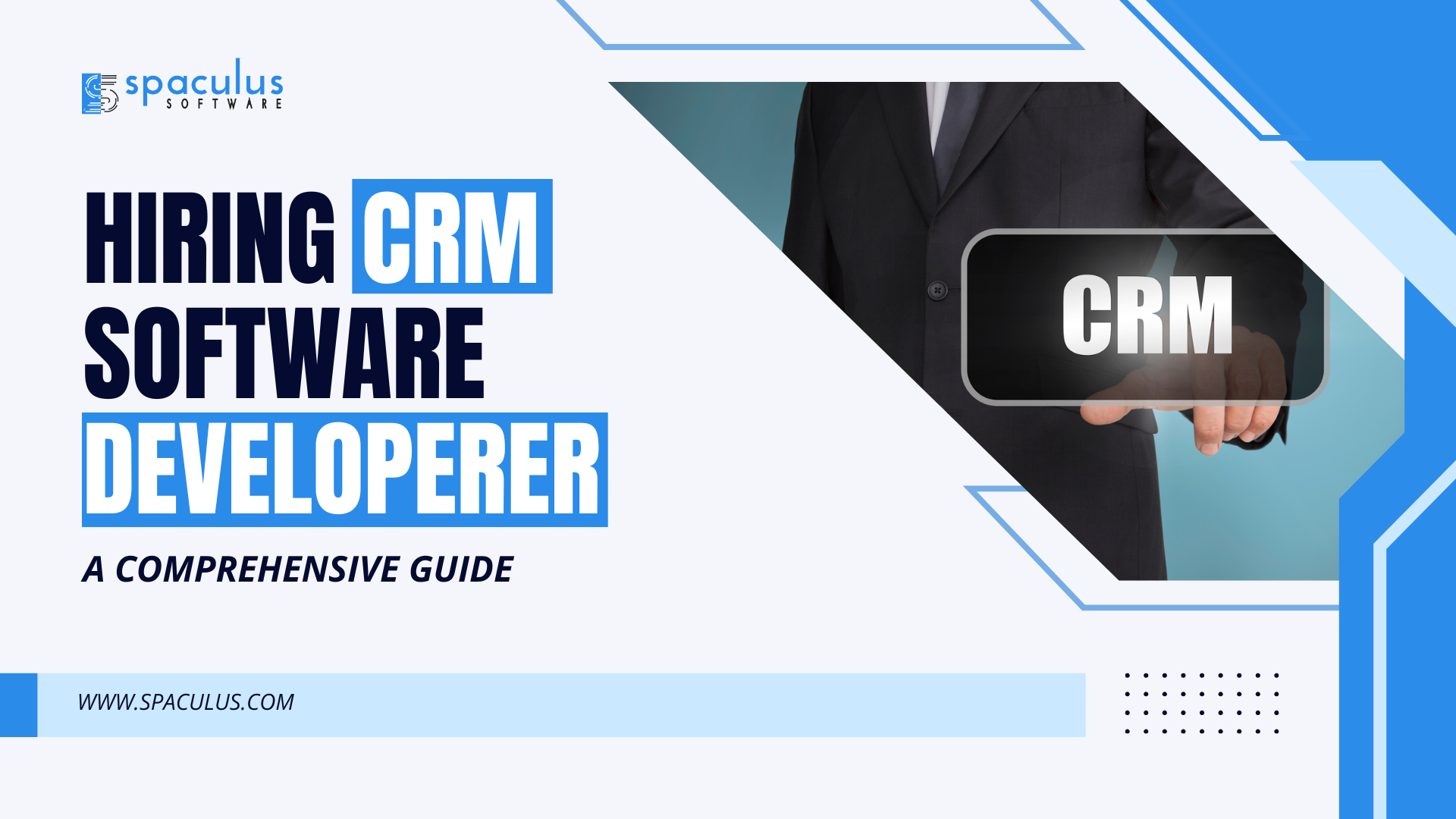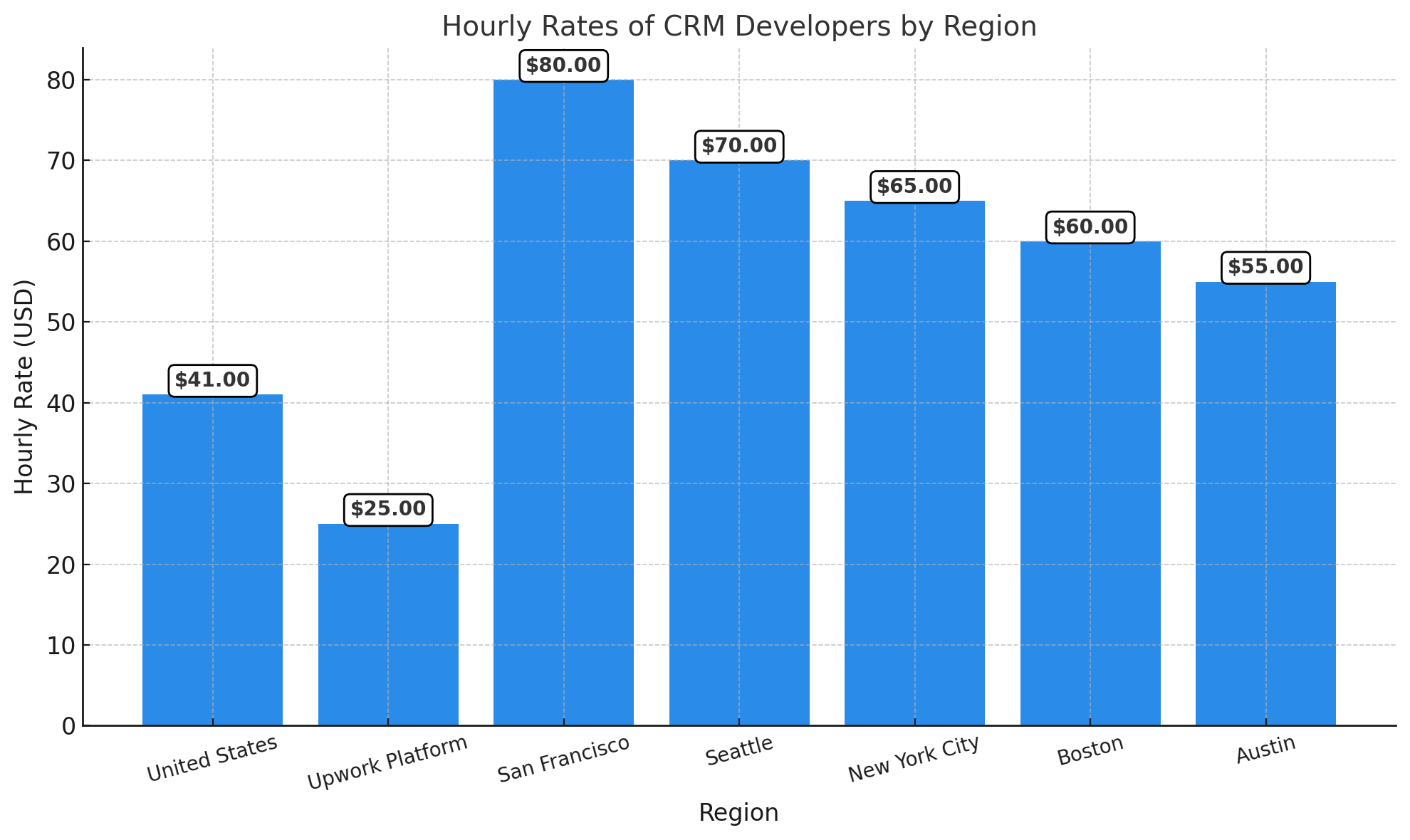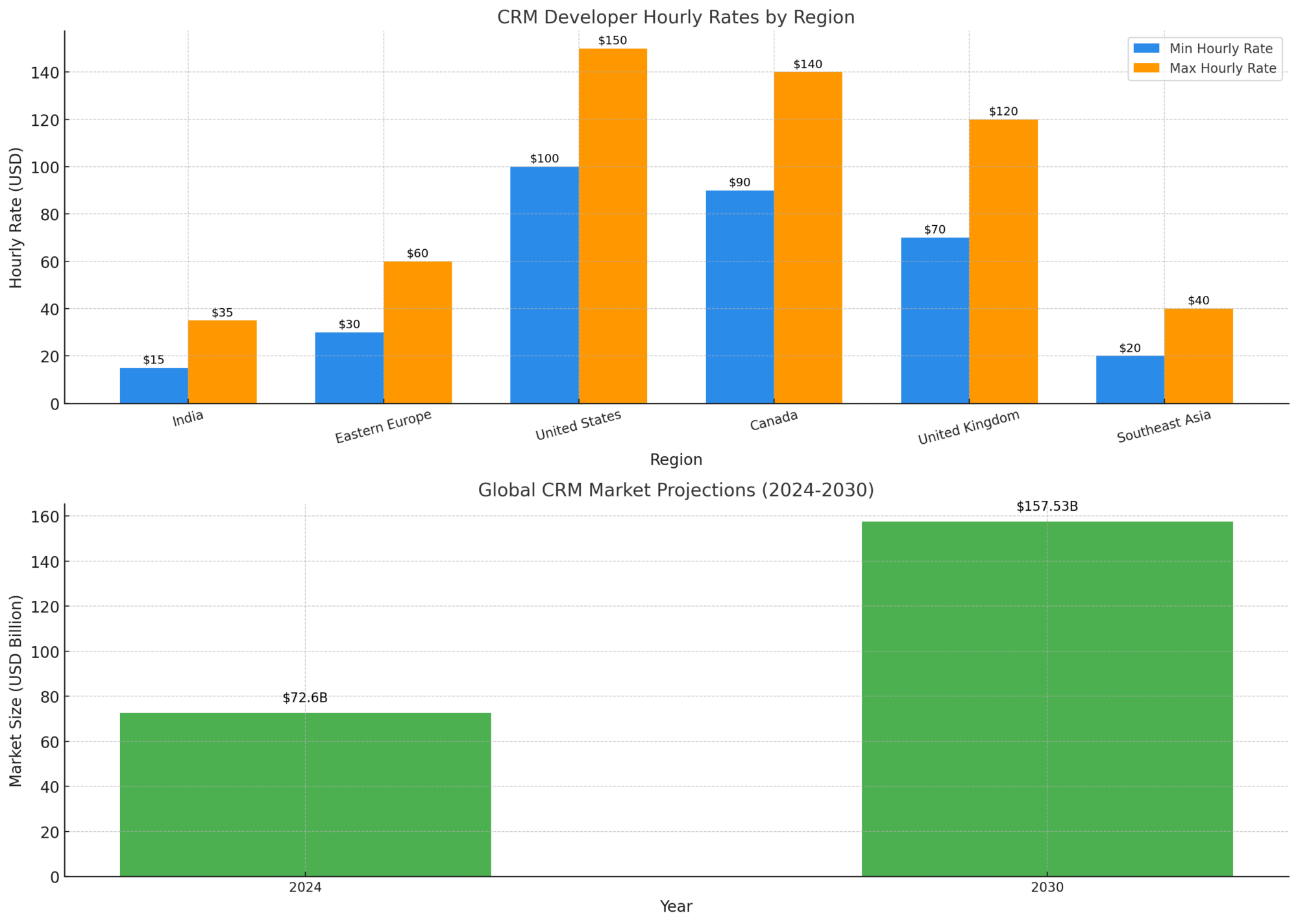
Customer Relationship Management (CRM) software plays a vital role in helping businesses manage and analyze customer interactions, improve efficiency, and drive growth. But the success of your CRM system depends on hiring the right developers who can tailor it to meet your business needs. In this guide, we’ll dive deep into the essential aspects of hiring CRM developers and provide you with practical insights, including a cost comparison of developers across geographical locations
CRM software is more than just a tool; it’s the backbone of customer engagement. By automating processes, streamlining communications, and analyzing customer data, CRM software enables businesses to:
Custom-built CRM systems offer unique advantages over off-the-shelf solutions. They are tailored to your specific needs, ensuring you don’t pay for features you don’t need and gain full control over the functionalities.

Deciding on the best hiring model for your project requires a deep understanding of your business needs, budget, and goals. Here is a breakdown of common hiring models and their unique advantages:
| Hiring Model | Cost | Expertise | Development Speed | Flexibility | Project Focus |
| In-House Team | High costs due to salaries, perks, training, and infrastructure expenses. | It may take time to develop domain-specific skills within your team. | Slower due to multitasking or limited team size. | Limited flexibility; team expansion requires additional hiring efforts. | Focus may be divided across multiple internal projects. |
| Freelancers | Generally lower rates compared to in-house teams or agencies. | Skills vary widely among freelancers, so thorough vetting is required. | Speed depends on freelancer availability and workload. | Highly flexible; can scale resources up or down as needed. | Freelancers often handle multiple clients, dividing their focus. |
| Outsourced CRM Developers | Cost-effective with no overhead costs for training or workspace. | Skilled professionals with industry-specific knowledge. | Faster delivery due to dedicated focus on the project. | High flexibility with scalable teams. | Fully focused on delivering results tailored to your requirements. |
| Dedicated Development Team | Moderate costs that balance expertise and project scalability. | Combines diverse knowledge and experience for specialized projects. | Fast-paced development with streamlined workflows. | Highly adaptable to changing project demands. | Entirely dedicated to your project with close collaboration. |
A critical aspect of hiring CRM developers is evaluating the return on investment (ROI). Here’s how businesses benefit from investing in the right talent:
| Metric | Description | Why It Matters |
| Time-to-Market | Speed of CRM solution development and implementation. | Faster deployment allows businesses to gain competitive advantages quickly. |
| Customer Retention | Percentage improvement in customer retention rates post-CRM implementation. | Enhances loyalty and satisfaction, directly impacting revenue growth. |
| Cost Savings | Reduction in operational expenses with CRM automation. | Minimizes manual effort and improves process efficiency, leading to long-term savings. |
| Revenue Growth | Percentage increase in revenue due to improved sales and customer targeting. | Custom CRM systems optimize customer segmentation and marketing strategies. |
| Employee Productivity | Increased efficiency in task management and collaboration. | A user-friendly CRM ensures employees focus on high-value tasks rather than admin work. |
When hiring CRM developers, ensure they have:

Here’s a step-by-step process to ensure you find the right talent:
The cost of hiring CRM developers depends on several factors:
| Factors | Explanation |
| Developer’s Geographical Location | Developers from different regions have varying hourly rates. |
| Experience Level | Junior developers cost less but may need guidance, while experienced developers charge higher rates. |
| Project Complexity | Simple projects cost less, while complex integrations or customizations require more investment. |
| Engagement Model | In-house teams may have higher overhead costs compared to freelancers or outsourced developers. |
When hiring CRM developers, costs vary significantly across regions due to differences in expertise, demand, and living expenses. Here’s a detailed comparison:
| Region | Hourly Rate (USD) | Typical Project Cost (USD) | Key Advantages |
| India | 15 – 35 | 5,000 – 15,000 | Cost-effective, high-quality work, flexible engagement models. |
| Eastern Europe | 30 – 60 | 15,000 – 30,000 | Strong technical expertise, good balance of cost and quality. |
| United Kingdom | 70 – 120 | 30,000 – 50,000 | High standards of development, strong focus on compliance. |
| United States | 100 – 150 | 50,000 – 100,000 | Premium expertise, tailored solutions, advanced technologies. |
| Southeast Asia | 20 – 40 | 8,000 – 20,000 | Affordable rates with growing expertise and scalable resources. |
Understanding these costs allows businesses to align their budget with their project goals, ensuring value for money and timely delivery.
When building or upgrading a custom CRM system, incorporating the right features can make all the difference. Here are some must-have features that businesses often overlook but can enhance functionality and user experience.
| Feature | Description | Why It Matters |
| Customizable Dashboards | Dashboards tailored to specific user roles for quick access to relevant data. | Improves productivity by eliminating unnecessary steps for different departments. |
| AI-Powered Analytics | Incorporates machine learning for predictive analytics, sales forecasts, and customer behavior analysis. | Enables data-driven decisions, helping businesses plan effectively for the future. |
| Workflow Automation | Automates repetitive tasks like lead assignment, follow-ups, and reminders. | Reduces manual work and improves efficiency across sales and support teams. |
| Omnichannel Support | Integrates multiple communication channels, such as email, chat, and social media, into one platform. | Ensures seamless customer interaction and avoids miscommunication across platforms. |
| Mobile Access | Allows CRM users to access the system on-the-go through mobile apps. | Enhances flexibility and ensures real-time updates, especially for field agents and remote teams. |
| Challenge | Description |
| Skill Mismatch | Finding developers with the exact expertise needed for your CRM platform. |
| Cultural Differences | Time zone and cultural gaps may impact communication and collaboration. |
| Cost Management | Balancing quality and affordability when hiring developers. |
| Scalability | Ensuring the team can handle future enhancements as your business grows. |
| Benefit | Explanation |
| Cost-Effectiveness | Hiring CRM developers optimizes your budget without compromising quality. |
| Technical Expertise | Developers bring specialized skills in CRM platforms and technologies. |
| Availability | Flexible talent pools allow businesses to find developers matching their specific requirements. |
| Time Zone Advantage | Teams can provide round-the-clock development and support for faster project completion. |
Here are some tricky CRM interview questions and why they are important:
| Trend | Impact on CRM Systems |
| AI Integration | Enables predictive analytics, customer segmentation, and chatbot implementation. |
| Mobile-Friendly CRMs | Rising demand for CRM systems that are accessible on mobile devices. |
| Cloud-Based CRMs | Ensures scalability, remote access, and real-time data availability. |
| Customization | Increasing preference for tailor-made CRM solutions to meet unique business needs. |
Hiring the right CRM software developers can transform how your business interacts with customers, improves efficiency, and drives growth. By considering factors like geographical location, experience level, and project complexity, you can make informed decisions.
By taking the time to understand your needs and following a structured hiring process, you’ll set your business up for success with a CRM system tailored to your goals.
Software Development